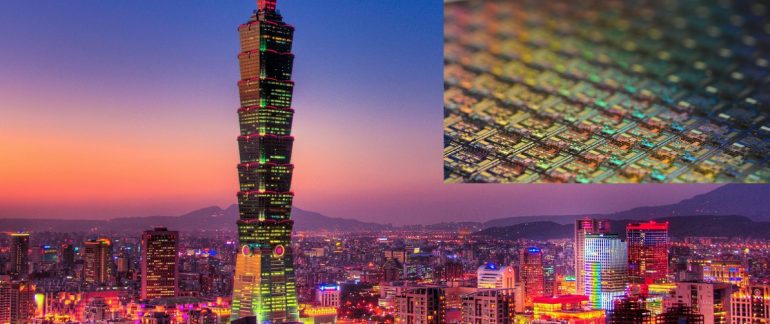December 15, 2020
Over the past year, Taiwan has led the race to build thinner, faster, and more powerful chips, or semiconductors the world has ever seen. Its fastest chips are the critical building blocks for Silicon Valley, artificial intelligence, and high-speed computing. Taiwan almost completely controls the technological advances in your homes, cars, appliances, smartphones, and military equipment, according to Business Standard.
Like the Cold War between the United States and the Soviet Union in years past, a New Cold War is currently underway between the United States and China; with both eyes set on Taiwan. However, even the most conservative analyst with absolutely no “pro-China” viewpoints admit China will eventually win the “New Cold War.” It’s about numbers and the United States barely graduates 600,000 STEM grads a year, while China alone, pumps out 4.7 million STEM grads a year.
Asian countries, especially China, doesn’t deal with internal grievances from various minority groups bitter they can’t take part in larger roles for STEM advancement. In Asia, you earn your respect, it’s not given to you because you’re a certain color.

Progressives calling for “diversity” for diversity’s sake would rather throw American innovation under the bus even if it costs the United States the lead they so desperately need to defeat the Chinese Communist Party. Many African-Americans believe Asians succeeded because they have a proximity to “whiteness,” and it had nothing to do with innovation and hard work.
Business Standard and The New York Times stated, “As of now, any country looking to dominate the digital future has to buy these superfast, ultrathin chips from either Taiwan or South Korea. And Taiwan has the edge in both technology and market power. It is a small island of just 24 million people, but it is at the center of the battle for global technological supremacy. Pound for pound, it is the most important place in the world. As the Cold War between China and the United States intensifies, that importance will only continue to grow.”
Once the teachers, the United States and West will turn into spectators at best. With an ever-changing demographic, the educational standards of the United States and Europe have fallen behind to the point they will never be able to catch up. The Japanese destroyed the American automobile industry and South Korea and Taiwan have surged ahead in the digital age.
“How did they accomplish this feat? Competent governments played a major role. South Korea nurtured giant conglomerates like Samsung and Hyundai, which exported consumer products under their own brand names. Taiwan cultivated smaller companies focused on making parts or assembling finished products for foreign brands. Today the flexibility goes a long way toward explaining its success,” according to Business Standard.
“Taiwan always managed to stay near the cutting edge, at first by borrowing technology from Western nations. As early as the 1970s, electronics had replaced textiles as its leading manufacturing industry. Through every phase of the computer revolution, from PCs to software to the mobile internet, Taiwanese factories managed to retool fast enough to remain important global suppliers.”
“Intel fell behind the leaders this year because of production delays. That left only two real competitors standing: Samsung and T.S.M.C. Both introduced five-nanometer chips this year and plan to introduce the first three-nanometer chips in 2022,” Business Standard continued to state.
“Going forward, many tech analysts predict that Taiwan’s business model gives it a clear edge. Most customers prefer a pure foundry that does not compete with them to design chips or build devices, and only Taiwan offers this service. That is a big reason Apple has been switching from Samsung to T.S.M.C. for the processing chips in the iPhone and why Intel is expected to outsource production of its most advanced chips mainly to T.S.M.C.”
Feature Images via Lonely Planet & Extreme Tech


